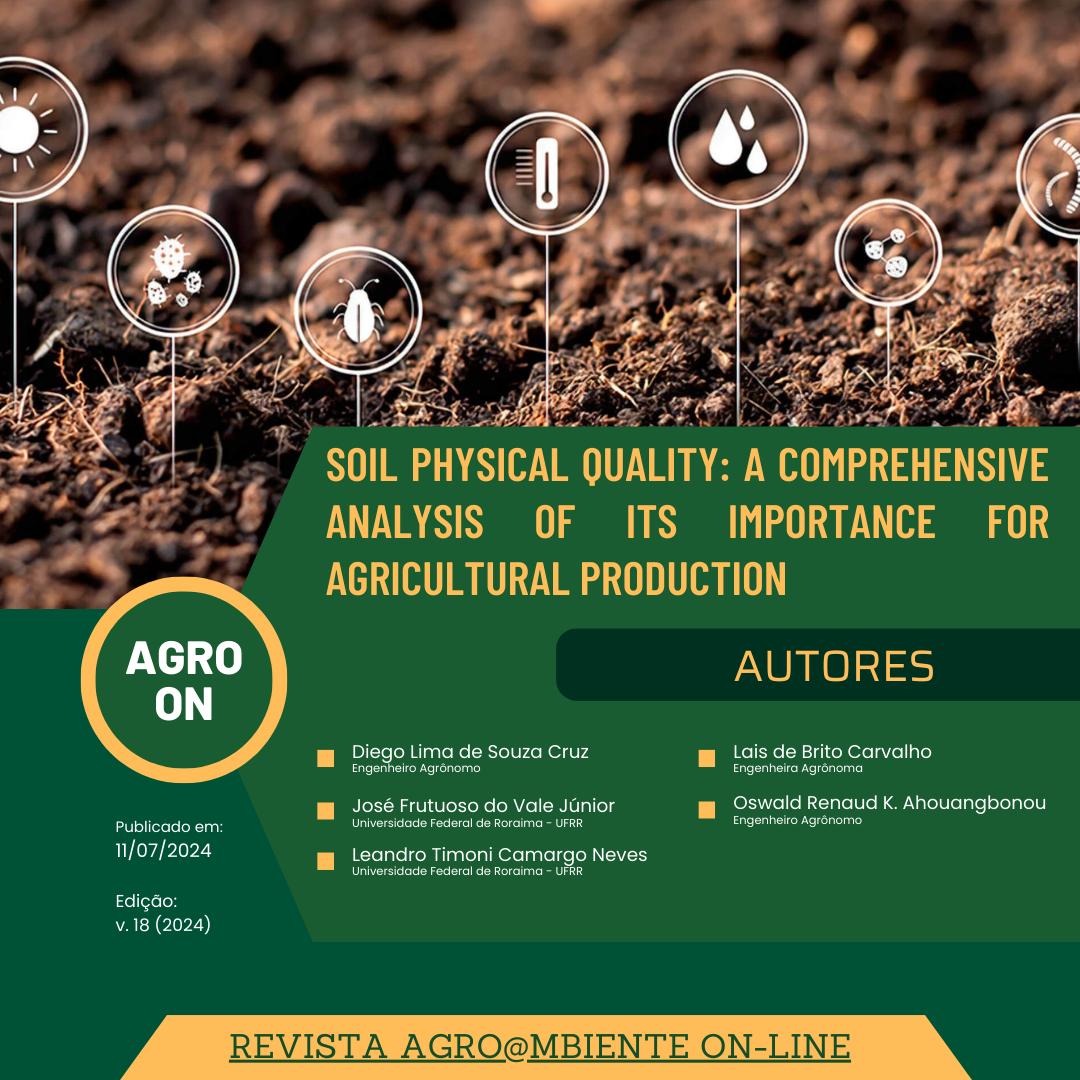Soil physical quality: a comprehensive analysis of its importance for agricultural production
DOI:
https://doi.org/10.18227/1982-8470ragro.v18i00.8060Palavras-chave:
Compaction. Management and conservation. Sustainability.Resumo
In Brazil, soil physics has acquired great notoriety in recent decades due to losses in agricultural production resulting from soil degradation. Degraded areas are commonly abandoned and generate greenhouse gas emissions, which is why the conservationist soil management have been a priority in government programs. The application of this type of management requires indepth knowledge about the physical properties of the soil and how each of them interacts with other components of the environment. In this context, the objective of this review article was to bring scientific work that correlated the physical quality of the soil with agricultural productivity. Articles indexed in the Web bases of Science, Scopus, Scielo and Redalyc were used. This methodology provided 129 articles, 4 books, 1 book chapter and a doctoral thesis. It can be established that the physical quality of the soil is dynamic and influenced by a set of properties simultaneously, also responding to soil management and climatic conditions. Compaction is the most studied property and has direct effects on the loss of agricultural production, leading many areas to erosion and compromising the soil’s environmental functions. It is considered that maintaining the physical quality of the soil is an essential component within the planning of agricultural activities and can prevent the degradation of areas. Understanding the dynamics of these properties can also help in reversing advanced cases of loss of soil physical quality.

Downloads
Publicado
Edição
Seção
Licença
Copyright (c) 2024 REVISTA AGRO@MBIENTE ON-LINE

Este trabalho está licenciado sob uma licença Creative Commons Attribution-NonCommercial-NoDerivatives 4.0 International License.
Declaro em meu nome e em nome dos demais autores que aqui represento no ato da submissão deste artigo, à REVISTA AGRO@MBIENTE ON-LINE que: • 1. O conteúdo do artigo é resultado de dados originais e não publicados ou submetidos a outros periódicos. • 2. Além do autor principal, todos os co-autores participaram suficientemente do trabalho para tornar públicas as respectivas responsabilidades pelo conteúdo. • 3. Em caso de aceitação do artigo, os autores concordam que os direitos autorais a ele referentes se tornarão propriedade exclusiva da Revista Agro@mbiente On-line, vedada qualquer reprodução, total ou parcial, em qualquer outra parte ou meio de divulgação, impressa ou eletrônica, sem que a prévia e necessária autorização seja solicitada e que, se obtida, devem constar os agradecimentos à Revista Agro@mbiente On-line do Centro de Ciências Agrárias/UFRR.


